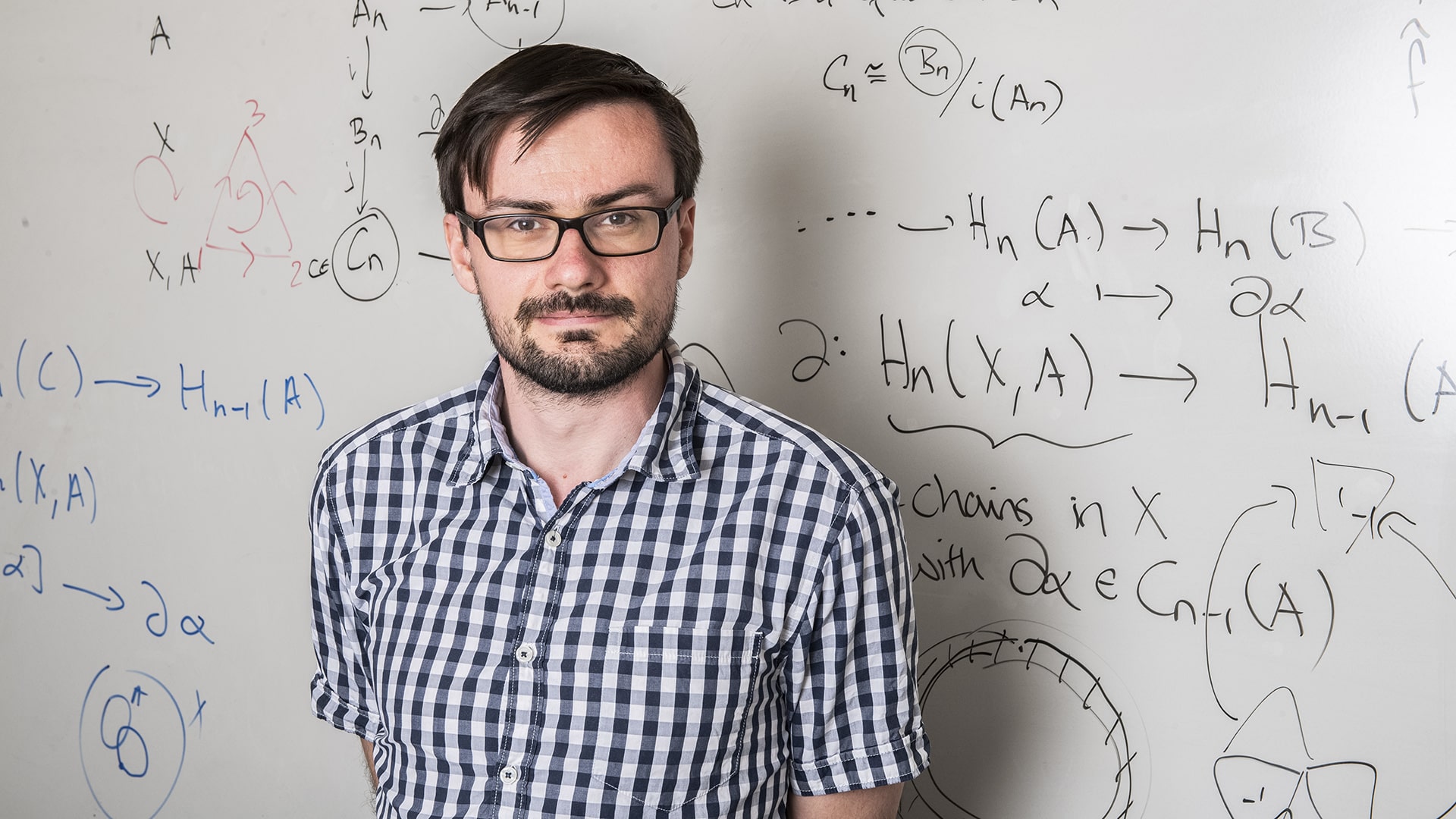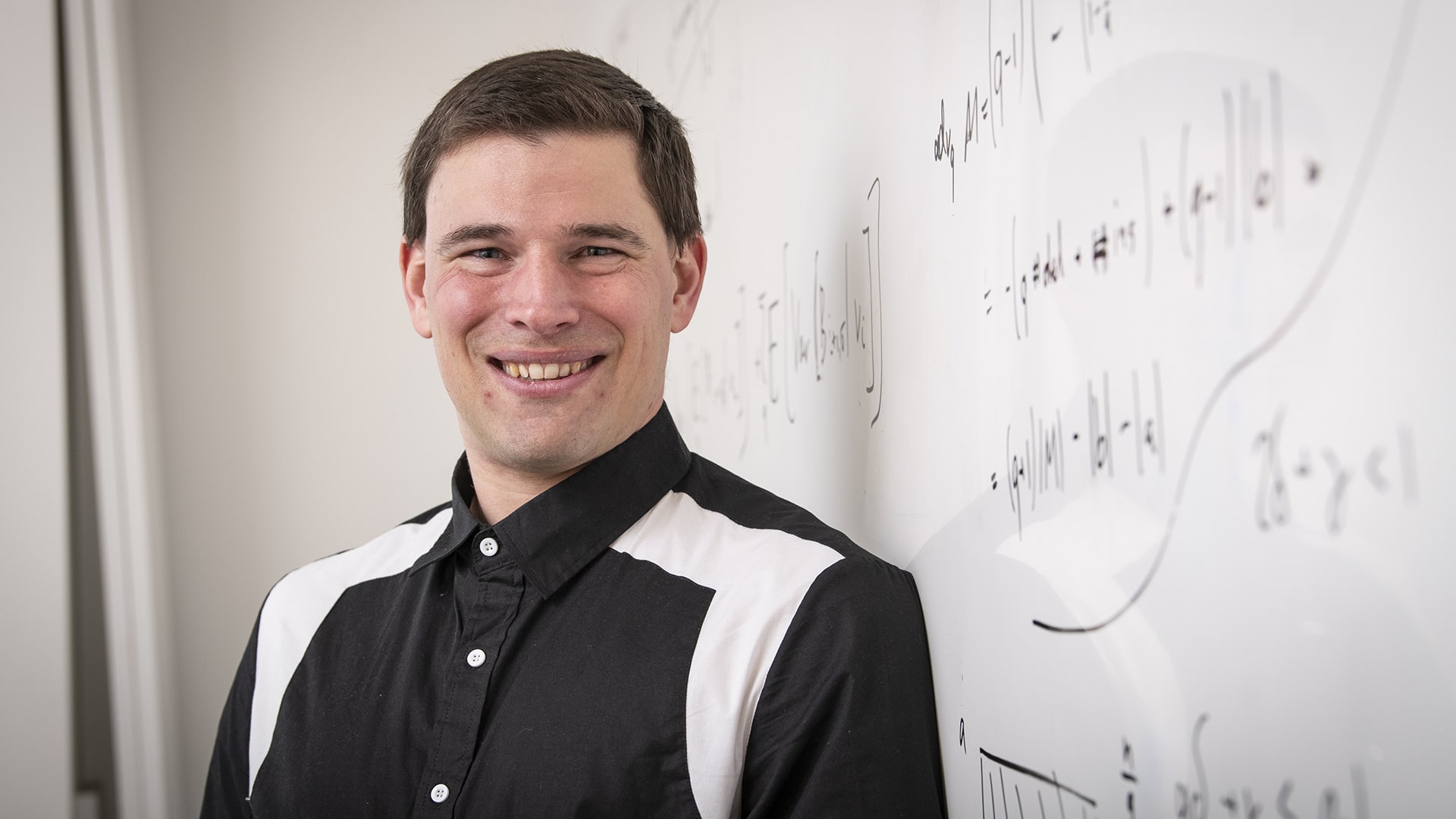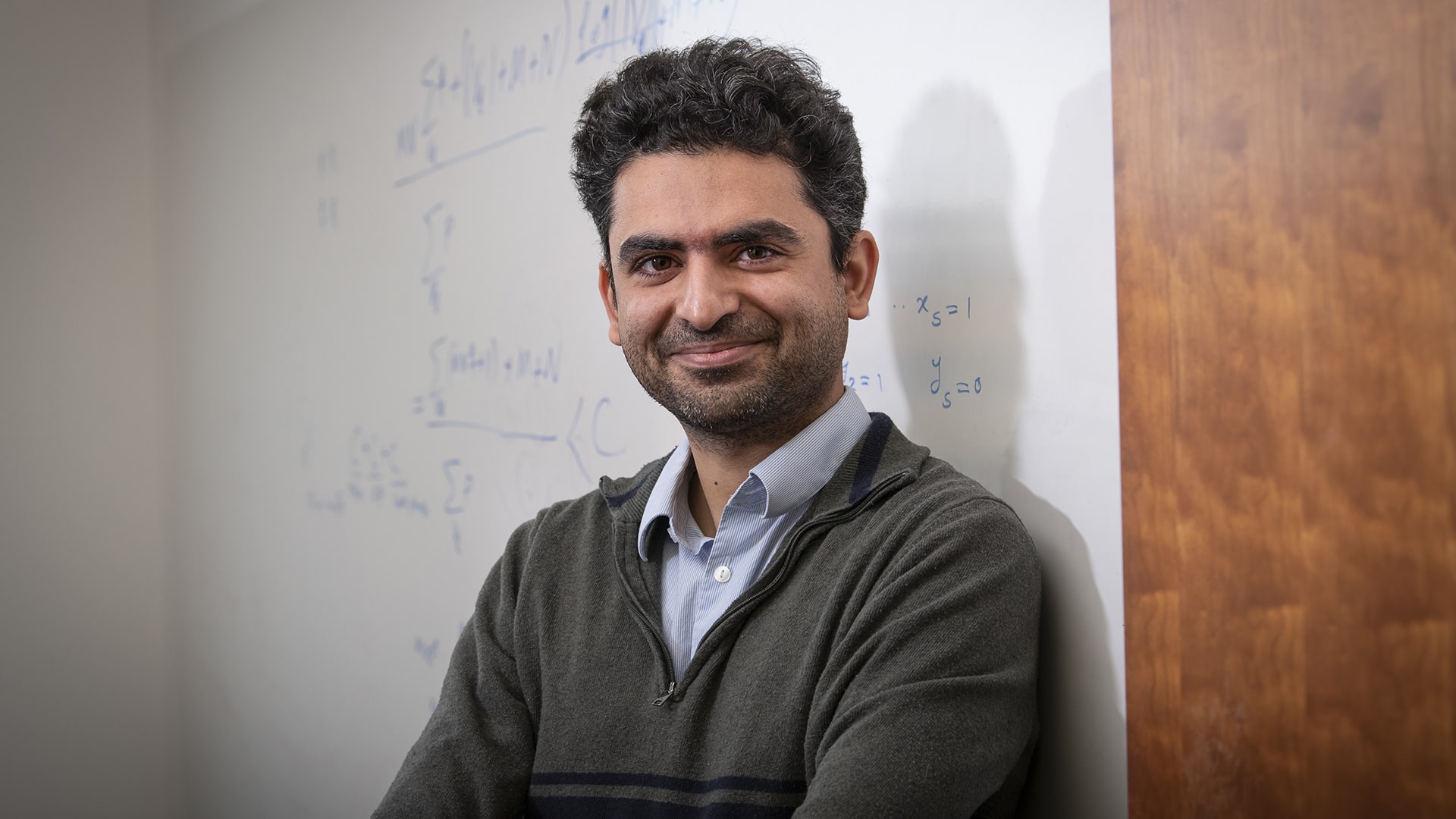Three CMU Faculty Members Receive Sloan Research Fellowships
By Byron Spice
& Ben Panko
Media Inquiries- School of Computer Science
- 412-268-9068
- Mellon College of Science
- 412-268-9982
Florian Frick, an assistant professor in Carnegie Mellon University's Department of Mathematical Sciences; Bernhard Haeupler, assistant professor in the Computer Science Department; Hosein Mohimani, assistant professor in the Computational Biology Department, are among 126 recipients of 2019 Sloan Research Fellowships, which honor early career scholars whose achievements put them among the very best scientific minds working today.
A full list of the 2019 fellows is available online.
"Sloan Research Fellows are the best young scientists working today," said Adam F. Falk, president of the Alfred P. Sloan Foundation. "Sloan fellows stand out for their creativity, for their hard work, for the importance of the issues they tackle, and the energy and innovation with which they tackle them. To be a Sloan fellow is to be in the vanguard of 21st century science."
 Florian Frick is an assistant professor in Carnegie Mellon University's Department of Mathematical Sciences.
Florian Frick is an assistant professor in Carnegie Mellon University's Department of Mathematical Sciences.
Florian Frick
Frick describes his research as working "at the triple-point of combinatorics, topology and geometry." An example of Frick's research is his work to determine whether it's possible to find four points that form a square within a curve in a plane. Another area of mathematics he's interested in is one that is relatable to many people at some point in their lives: fair rent division.
A native of Germany, Frick came to Carnegie Mellon last year from Cornell University, where he was an H.C. Wang assistant professor. During that time, he also spent a semester as a postdoctoral fellow at the Mathematical Sciences Research Institute in California. He received his Ph.D. in 2015 from Technische Universität Berlin, from which he also obtained his bachelor's and master's degrees.

Bernhard Haeupler is an assistant professor in the Computer Science Department.
Bernhard Haeupler
Haeupler, who joined the faculty in 2014, explores how to achieve efficient, reliable communications and prevent communication bottlenecks as future computer networks become increasingly decentralized. His research combines and goes beyond the traditional boundaries of theoretical computer science, information theory, and the theory of distributed computing, and builds foundations for the technological revolutions of the future.
Haeupler earned his Ph.D. in computer science at MIT, where his dissertation won the George Sprowls Award for best computer science Ph.D. thesis and the 2014 ACM-EATCS Doctoral Dissertation Award for Distributed Computing. Last year, he received a National Science Foundation CAREER Award for early career scientists. He was a postdoctoral researcher at Microsoft Research Silicon Valley before joining CMU.

Hosein Mohimani is an assistant professor in the Computational Biology Department.
Hosein Mohimani
Mohimani, who joined the faculty in 2017, uses high-powered computation to unearth previously undiscovered antibiotics. He has led international teams of scientists to develop methods for rapidly searching massive databases to discover novel variants of known antibiotics, identifying compounds that hold antibiotic promise and could help fight antibiotic resistance. To discover new classes of antibiotics, his team is developing new techniques for rapidly searching large mass spectral datasets for hypothetical antibiotic molecules predicted in the genome of microbes.
Mohimani earned his Ph.D. in electrical and computer engineering at the University of California, San Diego, where he was a project scientist before joining CMU.
The Sloan Fellowships are open to scholars in eight scientific and technical fields — chemistry, computer science, economics, mathematics, computational and evolutionary molecular biology, neuroscience, ocean sciences, and physics. Winners receive a two-year, $70,000 fellowship to further their research.